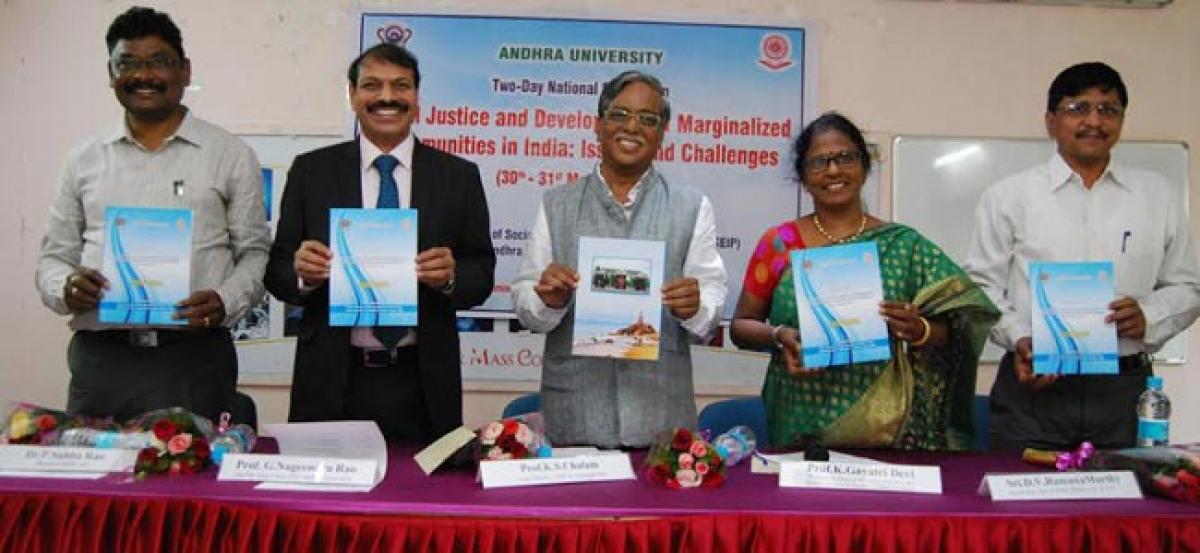Live
- Gahlot resignation: Delhi Congress calls AAP a sinking ship
- Consultative body on doctors' walkout fails to narrow differences in South Korea
- Honouring bravehearts: Army commemorates Nuranang Day
- 40,000 aspirants participate in army recruitment rallies across Jammu division
- Nigerian President Tinubu lauds PM Modi's efforts to amplify concerns of Global South
- Congress in Himachal to hold event in Bilaspur to mark two years at helm
- Hitaashee takes third title of the season, wins 14th leg of WPGT
- Group-3 exams in Wanaparthy district peacefully*
- Shraddha Das reigns as a fashion icon
- ‘Sarangapani Jathakam’ teaser set for Nov 21st release
Just In

Discriminatory practices in Europe and other western countries marginalised certain categories of people based on race, says Prof KS Chalam, former member, Union Public Service Commission and Chairman, Institute for Social and Economic Justice
Discriminatory practices in Europe and other western countries marginalised certain categories of people based on race, says Prof KS Chalam, former member, Union Public Service Commission and Chairman, Institute for Social and Economic Justice
Visakhapatnam: Andhra University Vice-Chancellor Prof G Nageswara Rao said new category of people are finding a place in ‘socially excluded groups’, thus there was a need to have a fresh look at the issues faced by the recently included sections, such as transgenders and persons living with communicable diseases.
Addressing the inaugural session of a two-day national seminar on ‘Social justice and development of marginalised communities in India: Issues and challenges’, organised by the Centre for Study of Social Exclusion and Inclusive Policy, Andhra University, here on Thursday, he said the changes taking place in society were a matter of concern and a subject of study for the social scientists.
He said there had been several movements launched for breaking barriers of social mobility and for a fair distribution of basic benefits for all the sections of the society. He noted that the society was dynamic and development can be observed and there was a change in the status of classes and differences among classes.
Prof KS Chalam, former member, Union Public Service Commission and Chairman, Institute for Social and Economic Justice, delivering a keynote address traced the growth of the concept of social justice in the third world. He noted how the discriminatory practices in Europe and other western countries marginalised certain categories of people based on race and the inhuman practices against Blacks.
He referred to the Advaita philosophy of Sankaracharya and explained the diverse approaches to social justice like the Egalitarian and Utilitarian approaches. He lauded the efforts of Dr BR Ambedkar in drafting the Indian Constitution, the best in the world which laid the foundations of social justice. He mentioned that the provisions in Fundamental and Directive Principles of State Policy were intended to attain social justice for the marginalised sections.
Presiding over the programme, Prof K Gayathri Devi, principal, College of Arts and Commerce, Andhra University, said poverty is another major barrier and a cause for marginalisation of Scheduled Castes and Tribes. She felt that income and wealth generation would transform the class structure in the country.

© 2024 Hyderabad Media House Limited/The Hans India. All rights reserved. Powered by hocalwire.com







